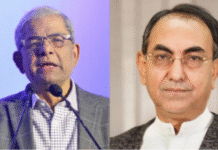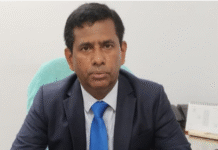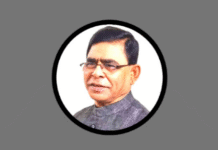Rohingya Repatriation Failure: PM blames Myanmar
Says Rohingyas scared of returning home as Myanmar has not created conducive environment

Prime Minister Sheikh Hasina has said Myanmar is dragging its feet on resolving the Rohingya crisis although it signed bilateral agreements with Bangladesh following pressure from the international community, including the United Nations.
Referring to the two failed attempts to start the Rohingya repatriation, Hasina said, “We’ve seen that Myanmar could not win Rohingyas’ trust in creating a conducive situation [in Rakhine state] for their dignified return.”
She said Myanmar should have ensured a sustainable Rohingya repatriation by guaranteeing their security, freedom of movement and work opportunities in Rakhine.
Replying to a query from Awami League MP Rumana Ali in parliament yesterday, the PM also said Bangladesh sent Myanmar information about 55,511 Rohingyas for verification, but the country identified only a part of these people as their citizens.”
She said, “We had full preparation, but still the repatriation did not start as the Rohingyas did not agree to return.
“We have seen that the Rohingyas are scared of going back to Rakhine due to various reasons, including no improvement of the security situation there.
“Myanmar is not doing a family-based Rohingya verification and uncertainty looms over Rohingyas’ getting back their homes, land and other properties.”
Fleeing military atrocities, including killings, rapes, tortures and burning of houses in the Rakhine State, more than 743,000 Rohingyas took shelter in Bangladesh since August 25, 2017. They joined the 300,000 others who had arrived earlier.
The second repatriation attempt failed last month.
Hasina said Bangladesh has continued its diplomatic efforts with the international community, including the UN, for the repatriation. Besides, European Union, Australia and United Kingdom have imposed sanctions on Myanmar military officials.
“We have requested friendly states like China, India and Japan for playing the necessary role in resolving the Rohingya crisis. We hope Myanmar will create a conducive situation in Rakhine and start taking back the Rohingyas soon,” she said.
The prime minister then reiterated that Bangladesh gave shelter to the forcibly displaced Myanmar citizens on humanitarian grounds.
She added her five-point proposal at the 72nd UNGA session in 2017 was well accepted by the world leaders. The proposals included Myanmar must unconditionally stop the violence and the practice of ethnic cleansing in the Rakhine State immediately and forever, and the Secretary General of the United Nations should immediately send a Fact-Finding Mission to Myanmar.
All civilians irrespective of religion and ethnicity must be protected in Myanmar. For that “safe zones” could be created inside Myanmar under UN supervision, according to the proposals.
‘AL DOES NOT BELIEVE IN VENGEANCE’
Answering a query from BNP lawmaker Rumeen Farhana, the PM said had the AL believed in the politics of vengeance, there would have been no existence of the BNP in the country.
“Awami League doesn’t believe in the politics of vengeance. If we did so, there would have been no existence of the BNP,” she said.
While asking the question during yesterday’s question-answer session in the House, Rumeen said, ”The prime minister’s instructions have become necessary for every case from [probing] murders of people to killing mosquitoes.
In reply, Hasina lambasted Rumeen for comparing the deaths of people with the killing of mosquitoes. She termed the question unexpected, unparliamentary and absurd.
TEESTA ISSUE
Replying to another query, Hasina said she expected to get positive response over various disputed issues, including Teesta water-sharing, before her visit to India early next month.
“We’re optimistic that all disputed issues between the countries will be resolved soon,” she told parliament responding to the question from Jatiya Party MP Mujibul Haque.
The PM is scheduled to visit India on October 3-6 to attend India Economic Summit of the World Economic Forum with the theme “Innovating for India; Strengthening South Asia, Impacting the World” to be held in New Delhi on October 3-4.
Hasina and her Indian counterpart Narendra Modi are scheduled to have a bilateral meeting on October 5.
The PM yesterday said Bangladesh and India have already signed agreements on security, trade, power, energy, inter-communication, development assistance, environment, education, infrastructure development, culture and health.
About Teesta water-sharing, she said her government’s diplomatic efforts were on for the agreement signing. The matter is being placed at the highest political levels of the two countries, she said.
“It hasn’t been signed yet due to internal Indian politics,” she said.
Replying to a question from JP lawmaker Rustam Ali Faraji, Hasina said Bangladesh has already taken initiatives for manufacturing a kit needed to detect dengue fever at the early stage. “We have started importing the raw materials since August 6,” she said.
She added that her government has taken proper steps to check dengue and that an investigation was underway to find out those responsible for buying ineffective mosquito repellents.
‘CHINA TO PLAY ACTIVE ROLE’
Meanwhile, newly-appointed Chinese Ambassador to Bangladesh Li Jiming yesterday said China will play an active role in the repatriation of displaced Rohingyas from Bangladesh.
He made the comment when he met Prime Minister Sheikh Hasina at her Jatiya Sangsad Bhaban office.
PM’s Press Secretary Ihsanul Karim briefed reporters after the meeting.
“China will play a constructive and active role in the repatriation of Rohingyas,” the press secretary quoted the Chinese envoy as saying at the meeting.
Describing the China-Bangladesh relations as a strategic one, Li Jiming said China was working on the Rohingya issue.
Source: The Daily Star.









